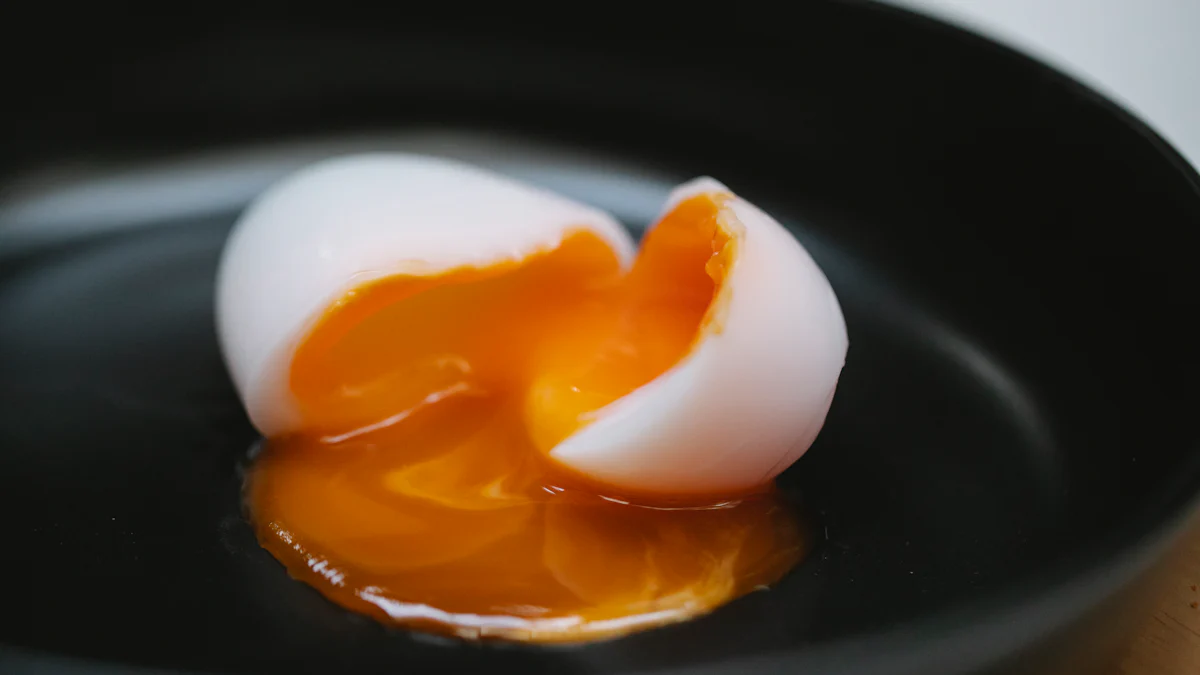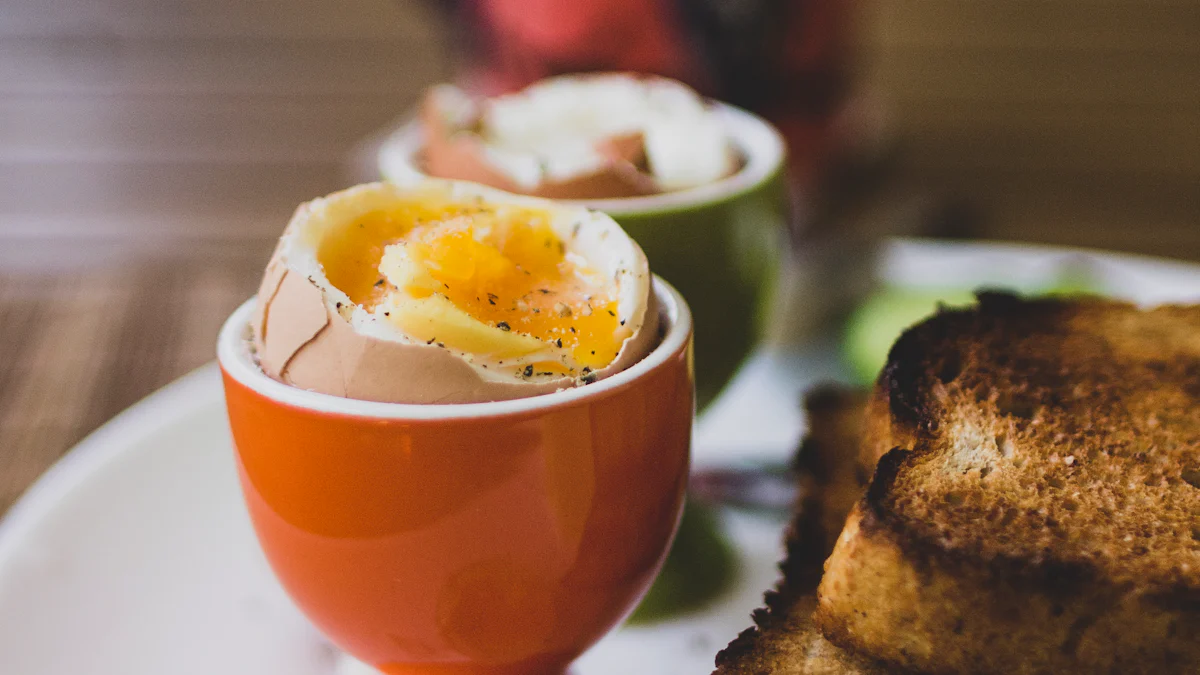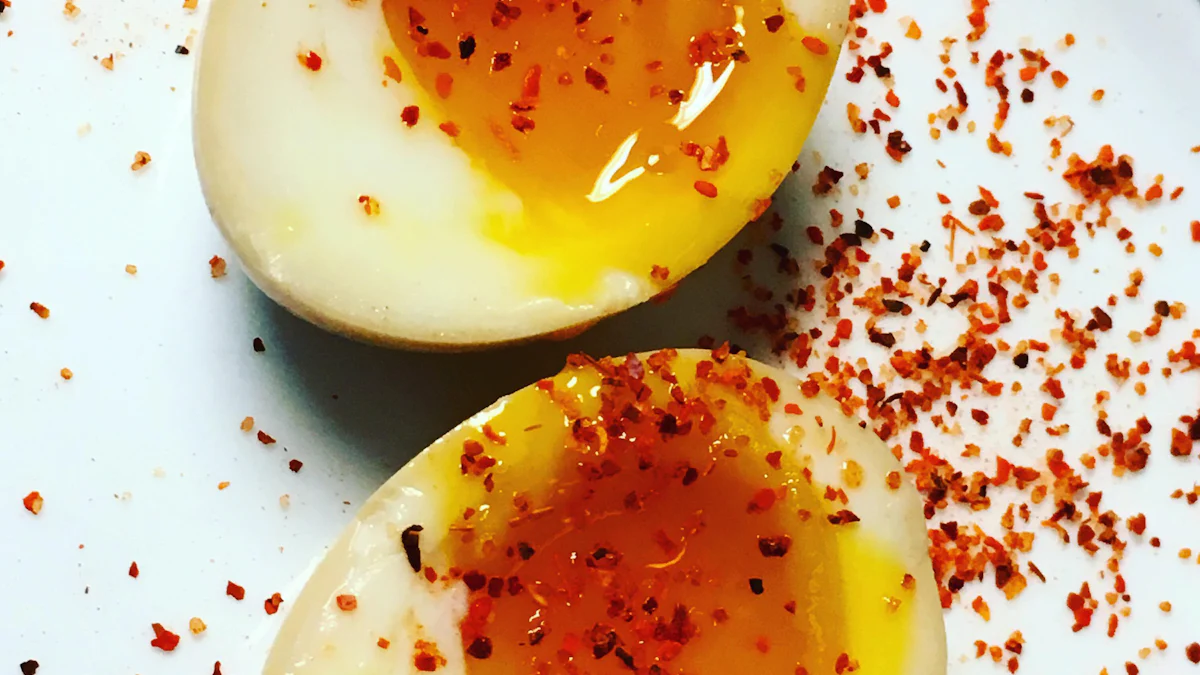
I’ve always found boiling eggs a bit tricky. Sometimes they’re overcooked, other times underdone. That’s where an egg boiler comes in handy. Models like the Egg boiler ZDQ-70C 2 lays or Egg boiler ZDQ-604 make it so easy. They save time and deliver perfect eggs every single time.
Key Takeaways
- Egg boilers cook eggs faster, in 6-7 minutes. Stovetops take 10-12 minutes.
- They give the same results every time. You can make soft, medium, or hard-boiled eggs easily.
- Egg boilers can do more. They steam veggies and warm food too. They are useful in the kitchen.
Benefits of Using an Egg Boiler

Convenience and Time-Saving
I can’t tell you how much time my egg boiler has saved me during busy mornings. Instead of waiting around for water to boil on the stovetop, I just pop the eggs in, set it up, and let it do its thing. It’s a game-changer! Did you know that traditional boiling takes about 10-12 minutes, while an egg boiler gets the job done in just 6-7 minutes?
Here’s a quick comparison:
| Method | Time Required |
|---|---|
| Traditional Boiling | 10-12 minutes |
| Egg Boiler | 6-7 minutes |
For someone like me who’s always rushing, those extra minutes make a huge difference. Plus, I don’t have to babysit the pot anymore. The egg boiler handles everything, so I can focus on other tasks.
Consistent Results Every Time
Have you ever boiled eggs only to find some overcooked and others underdone? That used to happen to me all the time. With an egg boiler, I get perfect results every single time. Whether I want soft, medium, or hard-boiled eggs, I just adjust the settings, and voilà! No more guessing games or peeling eggs that are too soft to handle.
Versatility in Cooking Options
Egg boilers aren’t just for boiling eggs. I’ve used mine to steam veggies, reheat rice, and even make idlis! It’s like having a mini steamer in the kitchen. Some models can even cook multiple things at once, like boiling eggs while steaming fish or vegetables. It’s super handy when I’m trying to whip up a quick, healthy meal.
Easy to Clean and Maintain
Cleaning my egg boiler is a breeze. After it cools down, I just disassemble the parts, wash them with soapy water, and wipe the main unit with a damp cloth. If there’s any mineral buildup from hard water, I descale it with a vinegar solution. It’s quick and easy, and the compact design makes it simple to store when I’m done.
Tip: Always make sure your egg boiler is completely dry before putting it away. This keeps it in great shape for longer!
Drawbacks of Egg Boilers
Limited Capacity for Larger Households
If you’ve got a big family or often cook for a crowd, an egg boiler might not cut it. Most models can only handle 6-7 eggs at a time. For me, that’s fine since I usually cook for just two people. But if you’re making breakfast for a larger group, you’ll probably need to run multiple batches. That can be a bit of a hassle, especially when you’re in a rush.
Dependency on Electricity
One thing I’ve noticed is that an egg boiler depends entirely on electricity. If there’s a power outage, it’s useless. I’ve had moments where I needed boiled eggs during a blackout, and I had to go back to the stovetop method. It’s something to keep in mind if you live in an area with frequent power cuts.
Additional Counter Space Requirements
Egg boilers are compact, but they still take up counter space. In my small kitchen, every inch matters. I had to rearrange a few things to make room for it. If your kitchen is already packed with gadgets, finding space for an egg boiler might be tricky.
Cost Compared to Traditional Methods
Let’s talk about cost. A decent egg boiler can set you back around Rs. 1,700. On the other hand, boiling eggs on the stovetop doesn’t require any extra investment. Over time, though, the energy usage of an egg boiler is lower. Here’s a quick comparison:
| Method | Time Taken | Energy Usage | Cost (Approx.) |
|---|---|---|---|
| Egg Boiler | 6-7 mins | Less | Rs. 1,700 |
| Stovetop Boiling | 10-12 mins | More | N/A |
For me, the convenience and efficiency of an egg boiler make it worth the price. But if you’re on a tight budget, sticking to the stovetop might be a better option.
How Egg Boilers Work

The Boiling Process Explained
I used to wonder how an egg boiler works its magic. It’s actually pretty simple! Here’s how I do it:
- Egg Selection: I always start with fresh eggs. Room-temperature eggs work best since they’re less likely to crack.
- Water Level and Measurement: I use the included measuring cup to add water. The amount depends on whether I want soft, medium, or hard-boiled eggs.
- Egg Placement: I carefully place the eggs in the tray. Overcrowding can lead to uneven cooking.
- Switch On and Set: Once everything’s ready, I turn on the egg boiler and select my preferred setting.
- Patience is Key: I let the boiler do its thing without opening the lid.
- Cooling and Peeling: After the cycle ends, I transfer the eggs to cold water. This makes peeling so much easier!
It’s a straightforward process, and I love how consistent the results are.
Key Features and Settings
Modern egg boilers come packed with features that make cooking eggs foolproof. Here are some of my favorites:
- Customizable water levels for perfect doneness.
- Simple touch controls that make operation a breeze.
- Automatic shut-off when the water dries out—no more overcooked eggs!
- Compact designs that save counter space.
- Versatility to prepare soft, medium, or hard-boiled eggs, and even poached eggs.
I also appreciate how energy-efficient they are. They use less power than boiling eggs on a stovetop, which is a nice bonus.
Types of Egg Boilers
There are several types of egg boilers to choose from, depending on your needs. Here’s what I’ve noticed:
- Basic Models: These can boil up to 7 eggs and are perfect for small households.
- Multifunctional Models: Some, like the Vesta 360-Watts 4-in-1, can handle up to 14 eggs and even steam vegetables or cook rice.
- Safety Features: Many models include automatic shut-off and overheating protection, which I find super reassuring.
For me, a compact model works best since I only cook for two people. But if you’ve got a bigger family, a larger-capacity boiler might be the way to go.
Comparing Egg Boilers to Traditional Methods
Time and Effort
When I first started using an egg boiler, I couldn’t believe how much easier it made my mornings. Traditional boiling takes about 10-12 minutes, but my egg boiler gets the job done in just 6-7 minutes. That’s a big difference when you’re rushing to get out the door!
Here’s why I think it’s a time-saver:
- It doesn’t need constant attention. I just set it up and walk away.
- The lid fits perfectly, speeding up the cooking process.
- No more guessing if the eggs are done.
With traditional methods, I had to keep an eye on the pot, measure water carefully, and hope I didn’t overcook the eggs. The egg boiler automates all of that, saving me both time and effort.
Consistency and Precision
I used to struggle with getting my eggs just right. Sometimes they were too soft, other times too hard. My egg boiler changed that. It uses steam from a precise amount of water, so the results are always consistent. Whether I want soft, medium, or hard-boiled eggs, I just adjust the settings, and it delivers every time.
Note: The automatic shut-off feature ensures the eggs don’t overcook. That’s something I could never guarantee with the stovetop method!
Cost-Effectiveness
At first, I thought an egg boiler might be an unnecessary expense. But over time, I realized it’s actually more energy-efficient than boiling eggs on the stove. It uses less electricity, which helps lower my energy bills. Plus, the convenience and consistent results make it worth the initial investment.
If you’re on a tight budget, the stovetop method might seem cheaper. But for me, the time and energy savings of an egg boiler make it a smart choice.
For me, an egg boiler has been a fantastic addition to my kitchen. It saves time, cooks eggs perfectly, and even prevents cracking. I love how versatile and easy to clean it is. If you eat eggs regularly, it’s worth considering. Just pick one that fits your needs and space!
FAQ
How do I choose the right egg boiler for my needs?
Look for capacity, features, and size. If you cook for a family, pick a larger model. For small kitchens, compact designs work best.
Can I cook other foods in an egg boiler?
Yes! Many models steam veggies, reheat food, or even cook rice. Check your model’s manual for additional cooking options.
Do egg boilers use a lot of electricity?
Not at all! They’re energy-efficient and use less power than boiling eggs on a stovetop. It’s a great way to save energy.
Post time: Jan-13-2025
